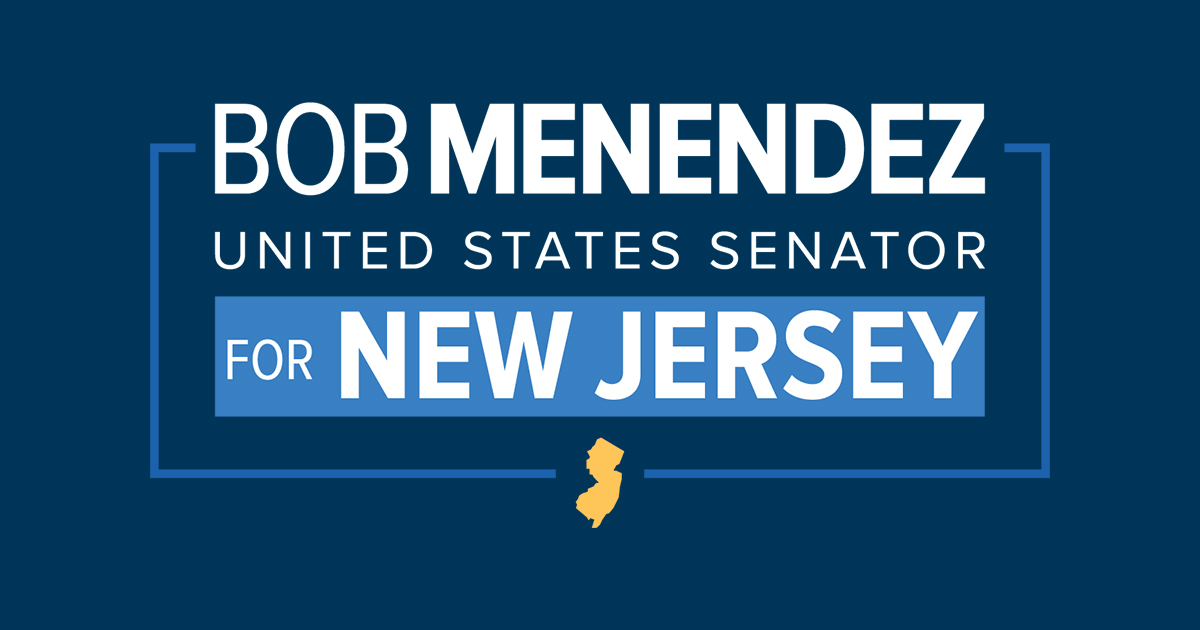Source: United States Senator for New Jersey Bob Menendez
WASHINGTON, D.C. – U.S. Senators Bob Menendez and Cory Booker (both-D-N.J.) today announced that the U.S. Environmental Protection Agency (EPA) awarded $94,815,000 to New Jersey from the Bipartisan Infrastructure Law through this year’s Clean Water State Revolving Fund (CWSRF). The funding will support New Jersey communities in upgrading essential water, wastewater, and stormwater infrastructure that protects public health and treasured water bodies. Nearly half of this funding will be available as grants or principal forgiveness loans helping underserved communities across America invest in water infrastructure, while creating good-paying jobs.
“Clean water is essential for safeguarding public health and protecting our environment, and I’m proud to have secured this funding in the Infrastructure Investment and Jobs Act,” said Sen. Menendez. “These federal dollars will help communities across our state upgrade stormwater, wastewater, and other vital infrastructure and protect the waterways that we depend upon. I appreciate the Biden Administration’s continued commitment to promoting healthy ecosystems and ensuring that every community across the country has access to safe, clean water.”
“Since its enactment, the Infrastructure Investment Jobs Act has delivered crucial funding to underserved communities in New Jersey to upgrade their aging wastewater infrastructure to protect public health,” said Sen. Booker. “This next tranche of funding will allow more water infrastructure projects in our state to be completed, which will pay dividends for years to come.”
The three NJ sites were included in a group of 22 sites nationwide that together received $1 billion from a new round of funding from the Bipartisan Infrastructure Law. Sens. Menendez and Booker successfully fought for the funding that comes from the $3.5 billion in the law designated for Superfund cleanups that Congress passed and President Biden signed into law in 2021. An estimated 50 percent of New Jersey’s population lives within three miles of a Superfund site.
Today’s announcement is part of the $2.4 billion announced as part of the second wave of funding made possible by the Bipartisan Infrastructure Law . In May 2022, EPA announced the initial allotment of $1.9 billion from the Bipartisan Infrastructure Law to states, Tribes and territories through the CWSRF. That money is supporting hundreds of critical water infrastructure projects around the country.
In addition to today’s announcement, the 2023 Drinking Water State Revolving Fund allocations and program updates are forthcoming, pending the release of the seventh Drinking Water Infrastructure Needs Survey and Assessment. EPA anticipates releasing the information in the coming weeks.
“President Biden’s Bipartisan Infrastructure Law is delivering an unprecedented investment in America that will revitalize essential water and wastewater infrastructure across the country,” said EPA Administrator Michael S. Regan. “Not only will these funds expand access to clean water and safeguard the environment, but more underserved communities that have been left behind for far too long will be able to access them.”
“This major investment, awarded through the groundbreaking Bipartisan Infrastructure Law translates into replacing or repairing aging wastewater infrastructure, implementing water reuse and recycling, addressing stormwater and addressing the risks from emerging contaminants,” said EPA Regional Administrator Lisa F. Garcia. “EPA is committed to getting these critical water resources to underserved and disadvantaged communities.”
“From our rural towns to our urban centers, communities across New Jersey have deep needs for investments in sewer and stormwater infrastructure,” said Shawn M. LaTourette, the State’s Commissioner of Environmental Protection. “With added support from the Biden-Harris Administration and through the Bipartisan Infrastructure Law, our Water Infrastructure Investment Plan is helping to ensure cleaner waterways by improving treatment facilities, remediating historic combined sewer overflows, and reducing risks from emerging contaminants like PFAS.”
Examples of progress in New Jersey under the Bipartisan Infrastructure Law involves focused work in the cities of Camden and Paterson to address Combined Sewer Overflow projects to comply with state permits and prevent untreated sewage discharges and flooding. The volume of wastewater can sometimes exceed the capacity of the combined sewer system or treatment plant. When this occurs, untreated stormwater and wastewater, discharges directly to nearby streams, rivers, and other waterbodies. These much-needed investments are critical to supporting local governments and revitalizing communities.
